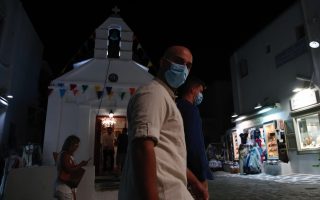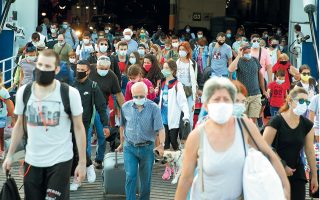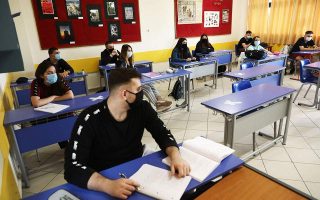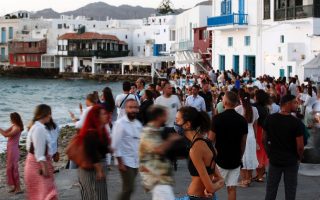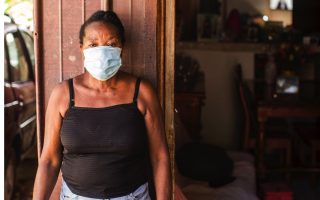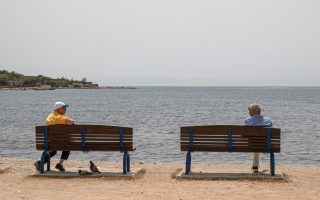One man’s fun is another man’s hell
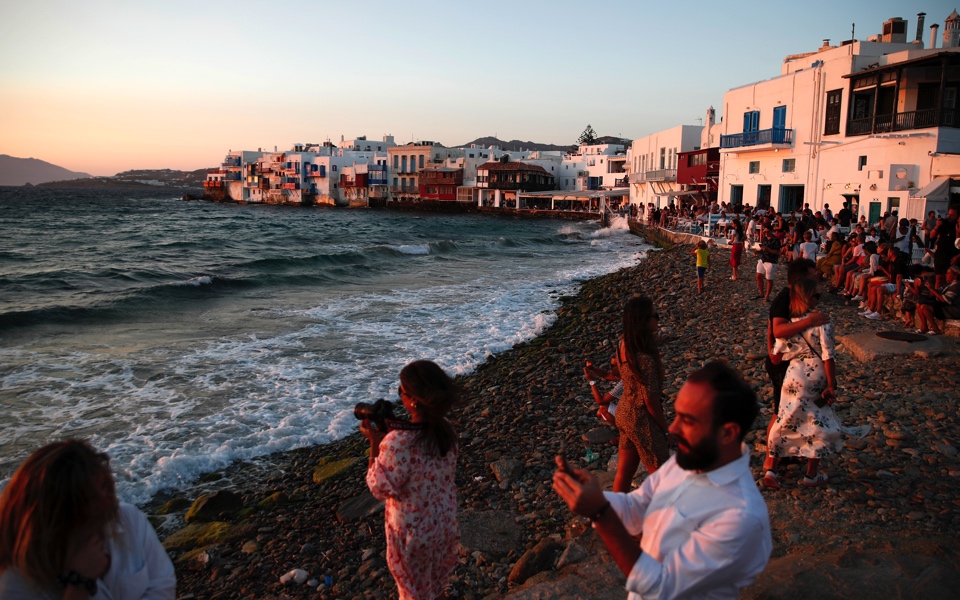
The party was held in the holiday home of a prominent Greek businessman on a cosmopolitan Aegean island at some time in early August. The businessman’s son had invited dozens of friends vacationing on that island and elsewhere – ignoring all official warnings about the coronavirus – to celebrate his birthday. The number of guests eventually rose to around 300. On arriving at the villa, they were made to sign a waiver exempting the party organizer from any responsibility if they became ill with Covid-19, while security guards blocked their cellphone cameras with a sticker so they couldn’t shoot photographs or videos. Everything went as planned and the party lasted into the wee hours without incident. Such was the joyful mood that some of the revelers kept dancing on the ferryboat as they left the island. A few days later, though, the positive tests started rolling in – no one know exactly how many – shaking dozens of well-heeled Athenian households.
Similar parties have been reported in recent weeks as having taken place at villas on Mykonos, Paros and Antiparos, and nightclubs and bars across the Cycladic islands, Halkidiki and Crete – all-night bashes without a modicum of safety. The result is that there are currently dozens of active coronavirus carriers on Mykonos and cases are skyrocketing in Athens and Thessaloniki as holidaymakers return.
In March, April and May we boasted about being champions of restraint in the campaign to contain the epidemic, but when holiday time rolled around, compliance fell short, to say the least, primarily among young people – mainly asymptomatic ones – who chose having a good time over safeguarding the more vulnerable sections of the population. A part was evidently played by the misapprehension – also on the part of government and health officials – that the strict lockdown had contained the virus and high summer temperatures would finish it off.
A relaxed and complacent attitude became the hallmark of the summer season. This is what led to almost no health protocols being enforced and the decision to limit the financial impact of the health crisis on tourism and the economy by reopening almost everything at once. Wearing a mask on an island at the start of the season got you some very strange looks.
Hindsight is always 20/20, you may say, but the authorities should have known that some additional caution at the beginning of the reopening would not have wrecked the economy. For example, by closing bars and restaurants at midnight, forbidding standing customers and putting a cap on the number of patrons, as well as by ordering the use of masks in all indoor public spaces.
The economy would have not suffered significantly more if conditions were stricter at the country’s northern land borders to contain the mass entry of tourists from the Balkans, which led to a major spike in infections in northern Greece in the first few weeks after the lockdown ended. Recent data showed that random testing at the northern land borders intercepted 88 cases from Romania, 86 from Bulgaria, 80 from Serbia and 63 from Albania – not to mention all the others that have not been reported.
Moreover, the government and the opposition parties should have agreed on a serious public awareness campaign responding to conspiracy theorists who continue to rail against the use of masks or even deny the existence of the novel coronavirus. Some argue that it is an invention of big pharma, to cash in on vaccinations, and others that it’s an attempt by the political establishment to control the lives of citizens. It’s no joke, though, because the kooks are the predominant voice on social media right now. Even graffiti on the streets of Athens read: “Masks = Junta.”
What with one thing and another, we are now scrambling to curb the spread of the virus before we start hitting 500+ new infections a day once the weather gets cooler and we start spending more time indoors.
The moral of the story is that it’s time to acknowledge reality and admit that a social conscience is not among the leading characteristics of Greeks – who are known as the kings of tax evasion. March’s success was not the result of concern for our fellow citizens as much as fear of having a situation similar to that of Italy, but also of Prime Minister Kyriakos Mitsotakis’ decision to heed the experts and lock the country down.
